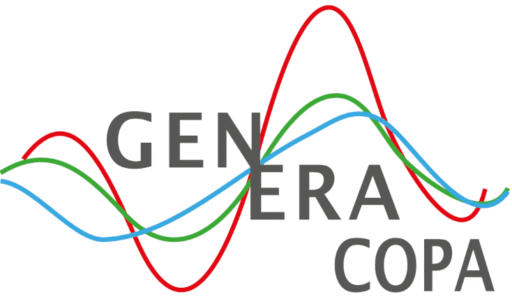Project
Overview & Background
The project, submitted under Erasmus+ Call 2025 Round 1 KA2 (KA220-HED), aims to transform higher education and research practices in the math-intensive STEM fields through the integration of gender, diversity, and inclusion.
What makes this proposal innovative is its scientific and pedagogical approach to embedding gender and diversity perspectives into disciplines that have traditionally been considered neutral or detached from such dimensions. By introducing a train-the-trainer model, the project goes beyond compliance with legal frameworks and develops a research-based justification for inclusive education and research — one that recognizes how diversity can directly enhance the quality, creativity, and societal relevance of scientific work.
In today’s rapidly evolving STEM landscape, characterized by increasing interdisciplinarity and international collaboration, the project responds to a critical need: to prepare students and young researchers to work effectively in diverse, inclusive, and globally connected research environments.
While many European institutions have taken steps to address gender balance and equality through Gender Equality Plans (GEPs) and related initiatives, the math-intensive STEM domains remain among the least explored areas in terms of integrating diversity into both curricula and research practices. This project pioneers the development of inclusive learning materials, dedicated training methodologies, and digital learning tools designed specifically for these fields.
Ultimately, this initiative aspires to create a cultural shift within the scientific community — from viewing diversity as a legal or ethical requirement to recognizing it as a core driver of scientific innovation and excellence.
Objectives and Goals
Through its focus on the math-intensive STEM fields, this project makes a significant and essential contribution to improving inclusivity within higher education, while also stimulating innovative learning and teaching practices.
The results and developed methodologies will be transferable to other academic disciplines and sectors, reinforcing the broader transformation towards a more equitable, inclusive, and socially responsible education system.
This impact is amplified by the project’s collaborative structure, which brings together participants from all levels of higher education and research — combining diverse expertise and many years of experience in advancing gender equality, diversity, and inclusion within STEM.The project is driven by four strategic objectives that align with the Erasmus+ priorities of Inclusion and diversity in all fields of education, training, youth and sport, Building inclusive higher education systems, and Stimulating innovative learning and teaching practices.
Develop and introduce a gender and diversity perspective in the math-intensive STEM fieldsSTEM Fields
Develop and introduce a comprehensive set of inclusive learning materials and course modules designed to embed gender and diversity perspectives into existing curricula. This will foster early awareness among students about the impact of diversity on interdisciplinary research and innovation.
Improve the education and learning culture by innovative and more inclusive learning method
Explore, test, and implement modern, inclusive, and barrier-free teaching methods tailored to math-intensive disciplines. These methods will not only enhance participation and learning outcomes but also provide a foundation for systemic improvement in higher education practices.
Innovate career opportunities and cultural change by implementing gender, diversity and inclusion and broadening mentoring by sponsoring and networking
Promote a cultural transformation within academia by expanding mentoring programs that include diversity-sensitive training, networking opportunities, and sponsorships. This will empower young scientists and researchers to pursue equitable career paths and act as future ambassadors of inclusion.
Reach out and interact with target groups, and invite all relevant national and European research organisations to support the integration of gender, diversity and inclusion in education and research in the math-intensive STEM fields
Engage with national and European research organizations, academic institutions, and policy stakeholders to disseminate results, share best practices, and encourage the mainstreaming of gender and diversity integration across all math-intensive STEM domains.
Expected results
By integrating inclusive pedagogical strategies and supporting a new generation of educators and researchers through a train-the-trainer approach, the project will:
- Enhance the quality and inclusivity of STEM education;
- Foster new research areas exploring gender and diversity in scientific modeling, sensor technologies, and diagnostics;
- Build sustainable networks for diversity-driven innovation;
- And ultimately, contribute to a more equitable, creative, and socially responsible European research ecosystem.
Target audiences
The project is designed to engage multiple stakeholder groups across higher education, research, and policy sectors, ensuring a lasting and systemic impact on inclusion and diversity in the math-intensive STEM fields.
Students and Early-Career Researchers
Master’s and doctoral students in mathematics, physics, engineering, computer science, and related disciplines.
Young researchers seeking to develop inclusive and interdisciplinary approaches to scientific inquiry. Individuals from underrepresented or marginalized groups in STEM who will benefit from more equitable access and participation.
Academic and Teaching Staff
University lecturers, professors, and teaching assistants involved in math-intensive STEM education. Educators committed to integrating gender, diversity, and inclusion principles into their teaching and curriculum design.
Trainers participating in the train-the-trainer program to multiply the project’s impact across institutions.
Mentors, Supervisors, and Research Leaders
Supervisors and principal investigators managing research groups in STEM.
Mentors responsible for guiding early-career researchers, promoting inclusive and bias-aware mentoring practices.
Equality and diversity officers within universities and research organizations.
Higher Education Institutions and Research Organizations
Universities, technical institutes, and research centers seeking to build more inclusive academic cultures.
Institutional leadership and HR departments implementing Gender Equality Plans (GEPs) and inclusive recruitment practices.
Policy Makers and Funding Agencies
National and European policymakers shaping frameworks for inclusion in science and education.
Funding bodies and networks supporting projects aligned with the EU’s and UN’s sustainability and equality goals.
